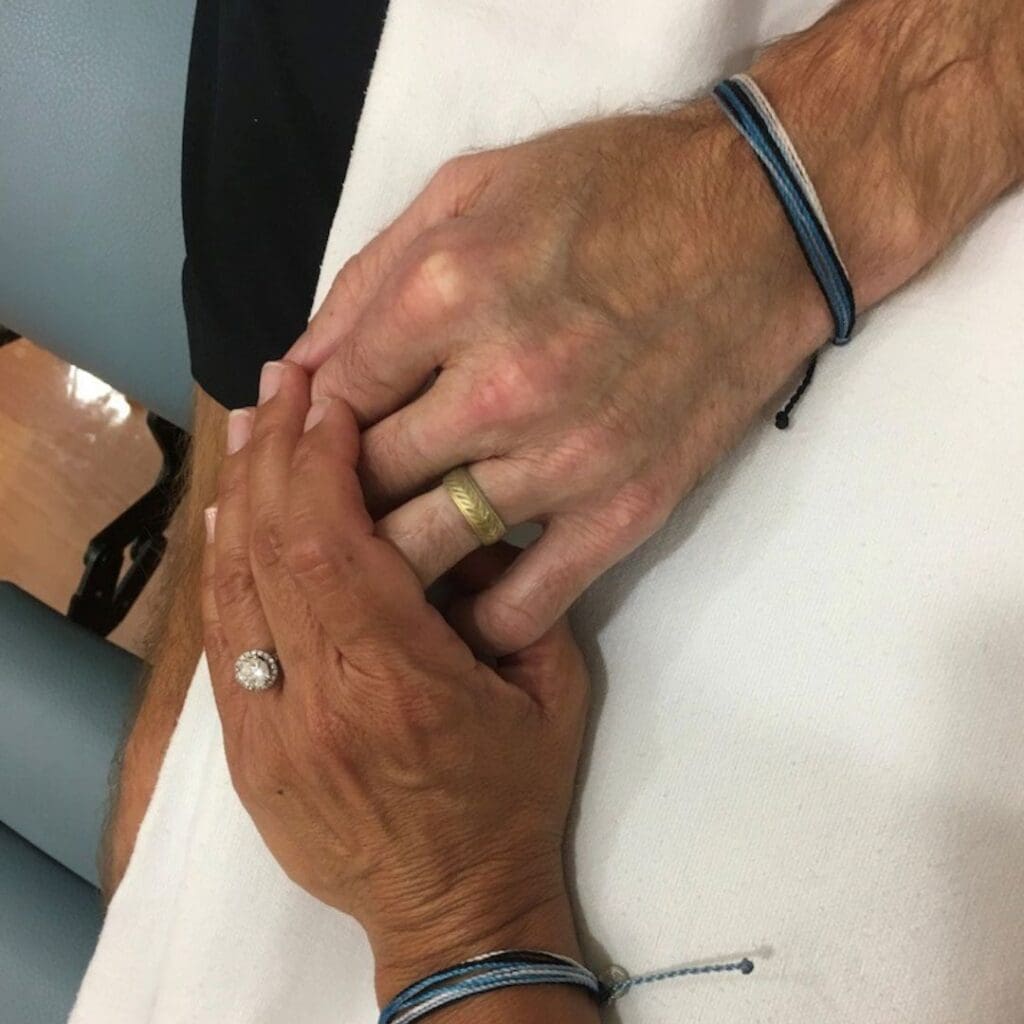
When Jeff was diagnosed with terminal cancer, I reached into the toolbox of strategies I had developed and tapped into the strength and resilience I had honed over the years after experiencing many painful losses. I knew that to be an effective caregiver, I had to implement self-care strategies whenever time permitted; this would be essential for my survival as a caregiver. Self-care is sometimes mistaken for selfishness and is often accompanied by guilt on the part of the caregiver. Taking time to refill my cup, practice self-care, and replenish my soul was critical for my well-being and survival during those challenging cancer years. For over three years, we created strategies to battle the cancer, but I also developed strategies to ensure that I could return day after day and lovingly be the best caregiver for Jeff; self-care was vital for my self-preservation.
Some self-care strategies I established as a caregiver included physical, emotional, social, and spiritual practices. For my physical self-care caregiver strategies, I implemented strategies such as: running, eating healthy to fuel my body, staying hydrated, getting sleep whenever possible, and taking breaks. Furthermore, as a caregiver I needed to implement strategies for emotional self-care strategies like seeking support from friends or a therapist, acknowledging overwhelming feelings, spending time alone for reflection, setting boundaries, and engaging in activities such as watching movies, listening to music, or reading. Jeff’s aggressive cancer kept us in and out of hospitals regularly as we sought new pain medications and treatments. These self-care strategies helped me create a more loving environment for Jeff as he fought cancer. I also recognized that mental self-care strategies were vital as a caregiver, so I made sure to meditate and stay organized to avoid feeling overwhelmed by the numerous pills, treatments, and appointments for Jeff. Additionally, I learned to delegate tasks to family and friends to alleviate some of my burdens as a caregiver. Some social self-care strategies I embraced as a caregiver involved spending time with close friends or family on the phone or occasionally in person. I methodically accepted help from those I could rely on, which lifted my spirits during the many challenging moments throughout the more than three-year cancer battle. My spiritual self-care caregiver strategies included daily prayers that Jeff and I read together, attending religious services when he was stable, and finding grounding in nature outdoors. There were numerous times where I almost reached my capacity and hit caregiver burnout. If not for these self-care strategies, I may have mentally maxed out from sheer exhaustion.
These self-care strategies were essential for my well-being and survival during those painful years when we fought cancer relentlessly. I am extremely grateful that I relied on my past experiences to help me navigate those challenging times.
I understood that being a caregiver is demanding. From my young adulthood and caregiving for my brother, I realized that caregiving can reduce even the strongest person to a fragile state. As a caregiver for my brother, I discovered the importance of self-care, which became the foundation of my self-care strategies. I learned that you can’t pour from an empty cup as a caregiver. Self-care is not selfish; it enabled me to provide better care for Jeff so we could continue building more strategies to buy more time together.
Painful losses have been my harshest teachers, but they’ve taught me resilience.
+ show Comments
- Hide Comments
add a comment